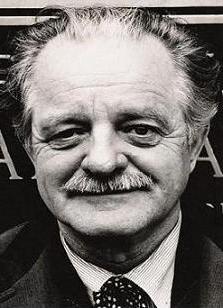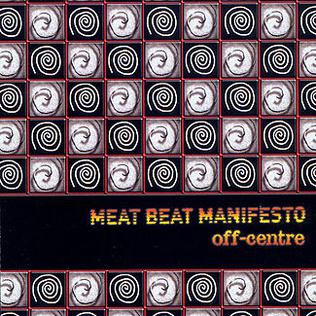
Spirit of the Boogie is the sixth studio album by Kool & the Gang, released in 1975. It can be seen as a follow-up to Wild and Peaceful (1973); the instrumental "Jungle Jazz" uses the same basic rhythm track heard in "Jungle Boogie", but lets the players improvise on their instruments. References to earlier works can be noticed. "Spirit of the Boogie" features Donal Boyce, who was rapping on "Jungle Boogie". Some African influence can be felt, and the band even play in a West-Indian style on "Caribbean Festival", another instrumental track, with once more much room for improvisation.

Lawrence Monsanto Ferlinghetti was an American poet, painter, social activist, and co-founder of City Lights Booksellers & Publishers. The author of poetry, translations, fiction, theatre, art criticism, and film narration, Ferlinghetti was best known for his second collection of poems, A Coney Island of the Mind (1958), which has been translated into nine languages and sold over a million copies. When Ferlinghetti turned 100 in March 2019, the city of San Francisco turned his birthday, March 24, into "Lawrence Ferlinghetti Day".

Kenneth Charles Marion Rexroth was an American poet, translator, and critical essayist. He is regarded as a central figure in the San Francisco Renaissance, and paved the groundwork for the movement. Although he did not consider himself to be a Beat poet, and disliked the association, he was dubbed the "Father of the Beats" by Time magazine. Largely self-educated, Rexroth learned several languages and translated poems from Chinese, French, Spanish, and Japanese.

The term San Francisco Renaissance is used as a global designation for a range of poetic activity centered on San Francisco, which brought it to prominence as a hub of the American poetry avant-garde in the 1950s. However, others felt this renaissance was a broader phenomenon and should be seen as also encompassing the visual and performing arts, philosophy, cross-cultural interests, and new social sensibilities.

Meat Beat Manifesto, often shortened as Meat Beat, Manifesto or MBM, is an electronic music group originally consisting of Jack Dangers and Jonny Stephens that was formed in 1987 in Swindon, United Kingdom. The band, fronted by Dangers, has proven versatile over the years, experimenting with techno, breakbeat, industrial, dub and jazz fusion while touring the world and influencing major acts such as Nine Inch Nails, the Chemical Brothers and the Prodigy. Some of the band's earlier work has been credited with influencing the rise of the trip hop, big beat, and drum and bass genres.

Subliminal Sandwich is a 1996 double album released by Meat Beat Manifesto on Interscope Records. The album is more experimental than the group's prior material, composed of lengthier pieces that incorporate more ambient textures and drones and fewer samples or defined song structures.
Jack Dangers is an English electronic musician, DJ, producer, and remixer best known for his work as the primary member of Meat Beat Manifesto. He lives in San Francisco.

Storm the Studio is the debut album by English electronic music group Meat Beat Manifesto, released on 20 February 1989 by Sweatbox Records in the United Kingdom and later that year by Wax Trax! in the United States. Recorded in three recording studios, the album contains four compositions, each split into separate parts, that mostly originated as twelve-inch singles the band released in 1988. The record's inventive musical style features elements of industrial music, electro, dub, noise rock and hip hop music, and incorporates breakbeats, noise and sporadic rap vocals. The group also incorporated heavy usage of sampling in a fashion they compared to pop art. Television was a further influence on the record, and numerous items of television dialogue appear throughout Storm the Studio as samples.

Light of Worlds is the fifth studio album, and seventh album of new material by the American R&B group Kool & the Gang. Released in 1974, it was later remastered by Polygram and was a second success for the band, reaching number 16 in the R&B Charts and number 63 in the Pop Charts. It was a landmark in the funk/jazz fusion genre of the 1970s.

Actual Sounds + Voices is the sixth studio album by electronic music group Meat Beat Manifesto, released in 1998. Like its predecessor, Subliminal Sandwich, the album deeply intertwines multiple forms of electronic music with live instruments such as the bass clarinet, saxophone, drums and Fender Rhodes. However, Actual Sounds + Voices is more influenced by jazz, coupled with a darker tone and characterized by persistent erratic breakbeats. The single "Prime Audio Soup" is featured in a scene of the 1999 film The Matrix and appears on the film's soundtrack.

The Ballad of the Fallen is a jazz album by bassist Charlie Haden, with arrangements by Carla Bley, that was recorded in 1982 and released in 1983. The album was voted jazz album of the year in Down Beat magazine's 1984 critic's poll. Haden and Carla Bley placed first in that 1984 poll's Acoustic Bass and Composer categories, respectively.

Live '05 is a live album by Meat Beat Manifesto initially sold during their live tour in 2006. Left over copies were sold online via the band's official website. The concert recorded took place at Cabaret Metro in Chicago on June 22, 2005. This is a limited edition of 1,000 and each disc is packaged in a digipak signed and customized by Jack Dangers. On the reverse side, near the center of the disc, the text "NEAT BEAT MANIFESTO-LIVE '05" is printed.

Off-Centre is a release by Meat Beat Manifesto which follows the album At The Center. Drums and percussion from tracks 1-4 are credited to David King. Steinway Grand Piano, Fender Rhodes and Hammond B3 instrumentation from tracks 1-4 are credited to Craig Taborn. Jack Dangers is crediting for writing, producing and engineering the album in addition to playing bass, bass flute, bass clarinet and everything else on tracks 1-4. Tracks 5 and 6 were recorded at Metro, Chicago, June 22, 2005. The live line up was Lynn Farmer on drums, Mark Pistel on sampler, and Ben Stokes and Jack Dangers on video sampler. One month before release Postcards and Maintain Discipline where available as free MP3s for download from Amazon.com. The album was released in CD format and 12" vinyl.

Black Byrd is a 1973 album by Donald Byrd and the first of his Blue Note albums to be produced by Larry Mizell, assisted by his brother, former Motown producer Fonce. In the jazz funk idiom, it is among Blue Note Records' best selling album releases. The title of the album inspired the name of Byrd's apprentice group, The Blackbyrds.

Although it is billed as a Duke Ellington and Johnny Hodges album, Side by Side is a 1959 album mostly under the leadership of Johnny Hodges, Duke Ellington's alto saxophonist for many years. Ellington only appears on three of this album's tracks. The album places Hodges at the fore, backing him with piano by Ellington or Billy Strayhorn and providing other accompaniment by jazz figures like Ben Webster, Roy Eldridge, Harry "Sweets" Edison and Jo Jones. The album, a follow-up to Back to Back: Duke Ellington and Johnny Hodges Play the Blues, has remained perpetually in print.

Autoimmune is an album by Meat Beat Manifesto. Though the album was originally announced as a 20-track double-CD release, frontman Jack Dangers decided to shorten the album to a single disc with different track listings between the US and European releases. Stylistically, it steps up the pace from other recent Meat Beat Manifesto albums, using elements of dub, hip-hop, industrial, breakbeat and more, and it is regarded as a partial return to the early industrial sound of the band in the late 1980s. The album has also been described as Dangers' take on dubstep, though he has stated that Meat Beat Manifesto has always utilized the underlying concepts of that particular genre. Autoimmune is the first Meat Beat Manifesto album with Danger's vocals since Actual Sounds + Voices in 1998; he appears on the track "Solid Waste". The album cover continues the checkerboard/grid theme also seen on earlier Meat Beat Manifesto albums Actual Sounds + Voices, RUOK? and the Off-Centre EP. Most of the remaining songs that were excised from the original double-disc concept were later released on an EP available only on the Autoimmune tour.

Percussion Bitter Sweet is an album by jazz drummer Max Roach recorded in 1961, released on Impulse! Records. It was trumpeter Booker Little's penultimate recording before he died from uremia in early October 1961.

Salt of the Earth is the second album by the Washington, D.C.-based group The Soul Searchers.

Gears is an album by jazz keyboardist Johnny Hammond. It was released in 1975 and produced by Larry and Fonce Mizell.

Expansions is an album by keyboardist Lonnie Liston Smith, featuring performances recorded in 1974 and released by the Flying Dutchman label the following year.



















